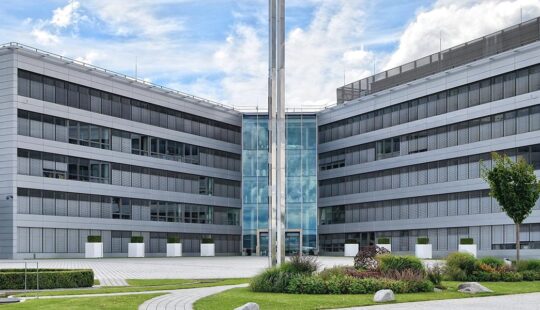It’s during times of great change and disruption that the strength and resilience of communities comes to the fore. The COVID-19 pandemic has impacted all aspects of life — from the way we work to the way we connect with friends and how we manage our health and our time. There have been many examples of true resilience and community spirit.
 However, it has also served to highlight the impact of unethical practices, such as bribery and corruption, on those people most in need of support.
However, it has also served to highlight the impact of unethical practices, such as bribery and corruption, on those people most in need of support.
As SAP Group Chief Compliance Officer Vivianne Gordon-Pullar points out, the way we conduct business today will define how future generations live, work, and thrive. By conducting only ethical business, we have the opportunity to make the world run better for generations to come.
Q: How important are integrity and ethics in business?
A: Ethics have always been — and will always be — important in life and in business. Doing business ethically means doing business with integrity.
Technological advancement and changing business models may prompt revised legislation and guidance, but the importance of ethical business remains critical in building a sustainable business. By making the right ethical choices, we can make a positive impact and strengthen democracy, economic development, and equality, as well as reduce poverty and social division.
Consider SAP’s mission: we want to help the world run better and improve people’s lives. With our robust ethics and compliance framework, we strive to conduct our business ethically and in adherence to the laws in all the markets in which we work. Our purpose drives how we conduct our business, and it is this that defines our culture. We focus on ethical business because it matters — to us, to our people, our customers, partners, suppliers, and most importantly to the societies in which we work.
Q: How will ethical business today shape the future?
Fundamentally, ethical business is about doing the right thing. Ethics, compliance integrity, trust: together these define good corporate citizens that deliver a positive impact on both business and the workplace, and on society as a whole.
By adopting strong ethics and compliance we can shape a future that is respectful, fair, and lawful for generations to come. We want our children and theirs to be able to build on our culture of ethics and accountability so that they can thrive, and continue to advance and innovate to make the world a better place.
Q: What are the pressures on ethical business?
In today’s world, and amplified by the impact of the pandemic, people can find themselves with more responsibilities, expanding goals, and tightening deadlines. Together these factors can lead to an increase in pressure to compromise ethical values. No organization, geography, or sector can be complacent when it comes to ethical business and compliance.
Q: How has a culture of ethics and compliance helped SAP navigate through the pandemic?
Clearly the pandemic has raised new pressures on business, but our values and culture have remained strong and unswerving. The guiding principle is ethical business, which drives sustainable, long-term value and impact while protecting us, our customers, and partners from the risks and consequences of non-compliance.
Q: Why is the United Nations’ IACD so important?
The IACD is important in driving awareness of the impact of bribery and corruption on society, highlighting how we all — including government officials, civil servants, law enforcement bodies, media representatives, the private sector, society, academia, and the public — have a responsibility and role to play in tackling corruption.
We hear of the very high-profile corruption and fraud cases as they are covered in the media, quite often presented with a focus on the corporate perspective, but the impact of bribery and corruption on people’s lives is significant> Understanding the context and impact of bad choices helps us to be robust and uncompromising in rejecting unethical behavior.
Understanding the very direct link between ethical business, driven by policies, trainings and defined processes, and a culture of compliance will help to turn the tide on this.



